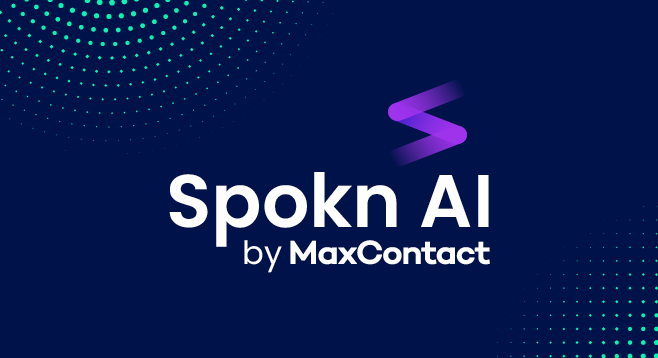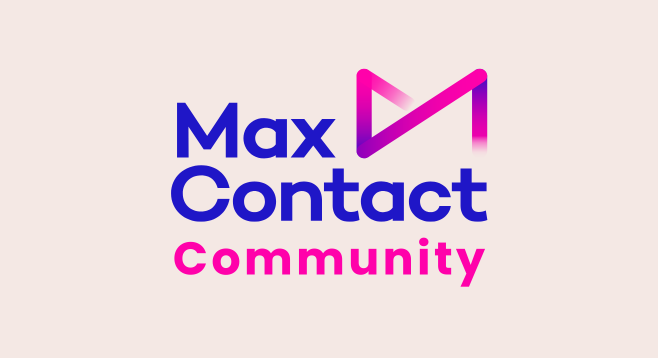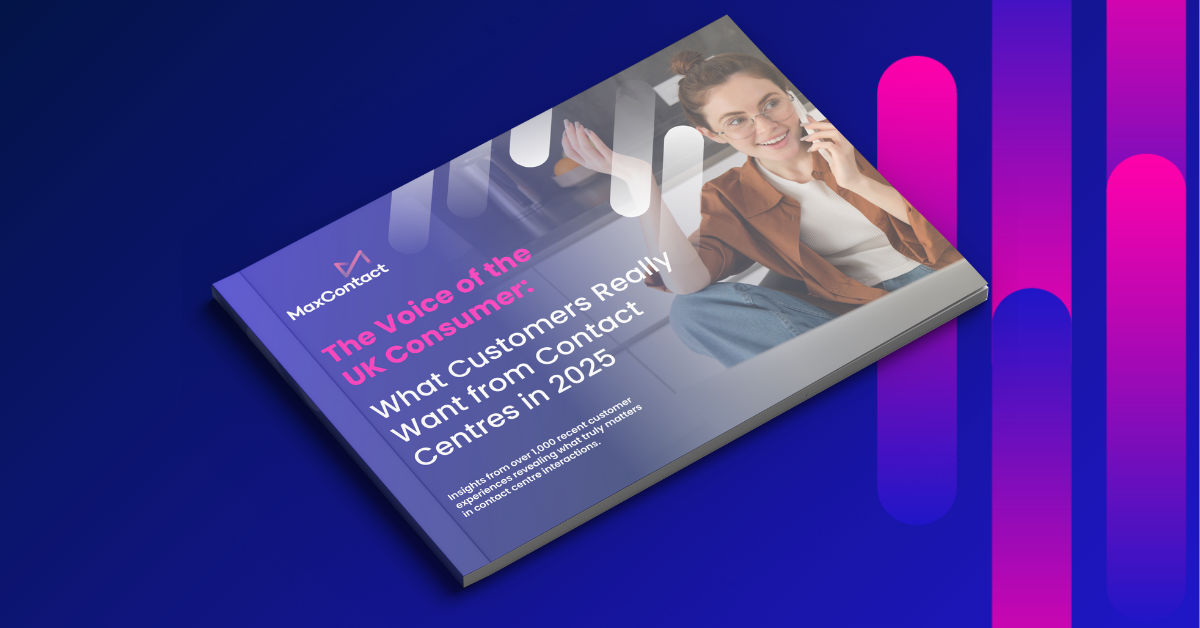Contents
Contact centres are always under pressure to remain compliant with complex laws and industry standards that frequently change. From data privacy regulations like GDPR to sector-specific rules such as those enforced by Ofcom, FCA, and Ofgem, contact centres must navigate a minefield of compliance requirements.
The increasing number of communication channels that contact centres operate through adds more complexity. Each channel – from traditional phone calls to social media and messaging apps – has its own set of compliance regulations.
One of the most common compliance pitfalls is that agents must read out specific phrases and terms to customers. These mandatory statements are essential for protecting both the customer and the business. Failure to comply can result in severe consequences, including fines and reputational damage.
This is where AI speech analytics steps in, offering a powerful solution to many of these compliance challenges. By using the capabilities of AI, contact centres can gain valuable insights into agent interactions and identify potential compliance risks. In this article, we will explore how AI speech analytics – like our Spokn AI software – can be used to improve regulatory compliance and enhance the overall customer experience.
What is AI Speech Analytics and How Does it Collect Data?
AI speech analytics relies on advanced algorithms, natural language processing and deep learning models to record and analyse phone calls. By converting audio files into text formats, speech analytics systems can extract valuable insights into customer interactions and agent performance.
The data collection process starts with the recording and storage of call transcripts in a secure database. These recordings can then be evaluated post-call, giving contact centre leaders valuable insights into agent interactions with customers against KPIs and more.
These are the key features of call recordings powered by AI speech analytics that enable it to function with advanced accuracy:
- Speech-to-text transcripts: Automatically converts spoken language into text, making it easier to review and analyse call content. These transcripts are summarised, providing an easier and quicker way to access and understand historic interactions.
- Keyword/topic spotting: Identifies specific words or phrases within the conversation, allowing for targeted analysis of key topics.
- Sentiment analysis: Determines the emotional tone of the conversation, identifying areas where customers may be frustrated or dissatisfied. Equally, it also pinpoints positive call interactions and these areas of strength can provide a blueprint for agent training.
- Categorise common objections: Sentiment analysis can be used to identify calls that started negatively and ended positively. By pinpointing the most common objections and how they are remedied effectively, call agents can learn how to successfully handle objections.
- Call quality metrics: Focuses on metrics that give better insight into call quality, such as talk-to-listen ratio, talk rate, correct call opening, and agent & customer monologues.
With these capabilities, speech analytics provides contact centre managers with the data they need to monitor agent interactions, identify compliance risks and improve overall customer satisfaction scores.
How AI Speech Analytics Data Supports Regulatory Compliance
AI speech analytics can support regulatory compliance across various industries. Contact centres can gain valuable data that help address common challenges and ensure adherence to industry standards.
Let’s take a closer look at some examples of compliance requirements that contact centres must adhere to. And assess how AI -powered speech analytics can support call centres.
GDPR: The Challenge of Data Protection
Data protection is a big concern for most contact centres, governed by both the General Data Protection Regulation (GDPR) and the Data Protection Act (DPA). While GDPR sets the overarching framework for data protection in the EU (and has been incorporated into UK law post-Brexit as the UK GDPR), the DPA sits alongside GDPR and outlines specific provisions tailored to UK legislation.
Both regulations impose strict requirements on businesses to protect personal data, but the DPA also covers areas not explicitly detailed in GDPR.
For example, the DPA stipulates that call centres must tell customers that their calls are being recorded for transparency and fairness in data collection.
Contact centres must also comply with other industry-specific regulations, such as:
- Direct debit regulations: Agents must read out specific parts of the script when setting up direct debits to ensure customers are fully informed.
- PCI DSS compliance for card information: When handling payment card information, call centres must make sure that sensitive data isn’t recorded. This involves pausing call recordings during the collection of card details to prevent unauthorised access.
Contact centres face significant challenges in complying with these complex and overlapping regulations, including:
- Handling Data Subject Access Requests (DSARs) effectively.
- Preventing and responding to data breaches.
- Obtaining informed consent and ensuring customers are aware of call recordings.
- Ensuring sensitive information is handled appropriately during calls.
AI speech analytics helps to address these challenges, helping contact centres to monitor compliance, reduce the likelihood of regulatory fines and strengthen overall data protection practices.
Here’s how AI speech analytics can help overcome these specific challenges:
| The Challenges | How AI Speech Analytics Can Help |
| Challenge 1: Informing Customers About Call Recording (DPA Requirement) Agents must inform customers that their calls are being recorded. Failure to do so can result in non-compliance with the DPA. | Solution: AI speech analytics can log whether agents are informing customers of call recording. Call centres leaders can manually search for specific phrases or keywords in call transcripts. This ensures consistent compliance with the DPA requirement. |
| Challenge 2: Handling Sensitive Payment Information (PCI DSS Compliance) Call centres must prevent the recording of sensitive card information to comply with PCI DSS. This requires agents to pause recordings during payment processing, which can be prone to human error. | Solution: AI speech analytics can monitor calls to verify that recordings are paused when sensitive information is collected. Call centre leaders responsible for quality assurance will be able to manually check if a recording is or isn’t paused, reducing the risk of non-compliance. |
| Challenge 3: Reading Mandatory Scripts for Direct Debits and Consent Agents are required to read out specific scripts when setting up direct debits or obtaining consent, ensuring customers are fully informed. | Solution: AI speech analytics helps to verify if agents have read the necessary parts of the script by identifying specific keywords or phrases. This helps ensure compliance with regulations governing direct debits and informed consent. |
| Challenge 4: Handling Data Subject Access Requests (DSARs) promptly. Customers can request access to their personal data and ask for deletions or changes to data sharing. Contact centres must facilitate this. However, it’s often a manual process of searching through vast amounts of recorded interactions to locate relevant information. | Solution: By using AI speech analytics, contact centre managers can search through recorded interactions quickly and efficiently to fulfil Data Subject Access Requests. Speech analytics removes the manual process of locating relevant information, and reduces the time it takes to fulfil DSARs. |
| Challenge 5: Getting Informed Consent from Customers Contact centres must get informed consent from customers before processing their personal data. Individuals must understand the purposes and implications of data collection and it will be used. Call agents must communicate this information clearly and provide consent documentation. | Solution: AI speech analytics provides searchable text files. These call transcripts can be manually reviewed for specific keywords or phrases to verify agents provide correct information and obtain appropriate consent. For example, in the sales industry, informed consent means customers understand the features and benefits of a product before buying. With speech analytics, call centre leaders can manually track keywords or phrases related to the product’s features. This helps call centres leaders to identify calls where the relevant keywords haven’t been used. It gives broader scope to check that agents explain the product clearly and customers understand what they are purchasing. |
Consumer Duty Act: Ensuring Fair Treatment and Clear Information
The Consumer Duty Act places a strong emphasis on fair treatment and clear information for consumers. Contact centres must tailor customer interactions to meet individual needs, identify vulnerable customers, minimise human error, and avoid pressurised selling tactics.
So what makes the Consumer Duty Act and FCA guidelines complex to adhere to in a call centre setting?
| The Challenges | How AI Speech Analytics Can Help |
| Challenge 1: Tailoring Customer Interactions to Address Specific Needs Every customer has different needs and preferences. But it’s hard for call agents to tailor their approach and give clear and fair information to each customer. It’s even more difficult to assess whether or not the customer understands what’s been said. | As well as taking the overall temperature of the call, sentiment analysis looks at individual phrases, including responses to product explanations. Sentiment analysis shows if customers may feel confused or frustrated. If customers express negative sentiments or ask clarifying questions, it suggests they aren’t clear about what has been said by the call agent. |
| Challenge 2: Identifying Vulnerable Customers Identifying vulnerable customers is difficult because the signs of vulnerability are not immediately apparent. A vulnerable customer covers various circumstances, including disability, financial hardship, language barriers and emotional distress. This makes it difficult to establish a single criteria for call agents to use to spot vulnerability. | Solution: AI speech analytics provides valuable insights into customer behaviour and language patterns to identify vulnerable customers. Sentiment analysis considers the emotional tone of conversations and detects negativity and distress. As all call transcripts are searchable, any specific references to communication difficulties or personal challenges, such as disabilities or financial hardship, can be manually reviewed. Managers and agents can offer targeted support when additional needs are found. |
| Challenge 3: Minimising Misunderstandings & Human Error All humans make mistakes – including call agents. Sometimes it’s easy for agents to misunderstand customer questions or provide incorrect information. The challenge is how do call centres catch these incidents and rectify them? | Solution: AI speech analytics can be used to analyse recorded transcripts post-call. AI can piece together keywords, tone and pace, to give a better understanding of agent performance. Call centre leaders can manually compare agent interactions to recommended scripts, highlighting calls where the agent may have given misleading information. It gives contact centres the opportunity to address mistakes and provide further training. |
| Challenge 4: Encouraging Ethical Selling Techniques Agents may feel under pressure to close sales and meet their KPIs, which can sometimes lead to the use of overly assertive selling techniques. This can be difficult to define and monitor. | Solution: AI-driven speech analytics can analyse keywords, tone, pace and sentiment to identify instances where sales interactions may not align with best practices. This helps ensure a positive and customer-centred approach to selling. |
Consumer Rights Act: Dealing with Customer Complaints
The Consumer Rights Act outlines the fundamental rights of consumers in the UK. As part of this legislation, contact centres must effectively address customer complaints to demonstrate their commitment to consumer satisfaction and compliance with regulatory requirements.
| The Challenges | How AI Speech Analytics Can Help |
| Challenge 1: Identifying root causes of recurring customer complaints Agents handle a large volume of calls everyday. So when complaints happen, it’s difficult for contact centre leaders to identify themes of complaints and assess underlying issues. Recurring issues go unnoticed, impacting customer satisfaction scores. | Solution: Speech-to-text technology provides searchable call transcripts of customer interactions that are easier to QA. By analysing these call recordings, contact centres can identify common complaint themes, such as recurring issues with products or services. This information can be used to address underlying problems and prevent future complaints. |
| Challenge 2: Addressing Customer Complaints Efficiently Resolving customer complaints within a reasonable timeframe can be challenging, especially when dealing with complex issues or requiring coordination with multiple departments. Delays in resolution can lead to customer dissatisfaction and potential regulatory action. | Solution: Speech analytics analyses call recordings at scale. This makes it easier for contact centres to verify that agents are resolving complaints within a reasonable timeframe, and following appropriate procedures. |
| Challenge 3: Ineffective Complaints Handling Training Generic training that fails to address the specific needs of agents can lead to ineffective complaint handling. This, in turn,can result in longer resolution times, decreased customer satisfaction, and an increase in escalated complaints. Ineffective complaint handling can also lead to non-compliance with regulations, resulting in fines or penalties. | Solution: Analysing agent interactions during the complaints process can help identify training gaps related to complaint handling. This allows contact centres to provide targeted training to equip agents with the skills and knowledge to address customer concerns effectively. |
| Challenge 4: Implementing an Effective Complaint Handling Process Ensuring that customers are satisfied with the resolution of their complaints is essential for maintaining a positive reputation and avoiding negative publicity. It can be difficult to assess customer satisfaction and identify areas for improvement without the right tools and data. | Solution: Speech analytics helps to measure customer satisfaction with the complaint resolution process itself. Customer sentiment during the process identifies areas of dissatisfaction and opportunities for improvement. |
Why AI Speech Analytics?
Compared to traditional speech analytics, AI-powered software is much more effective – particularly when it comes to supporting compliance. AI has the ability to recognise nuances in conversation, adapting seamlessly to variances in language and emotion compared to rule based keyword spotting alone.
This means that AI speech analytics is much more accurate when assessing agent performance against intricate regulations. This, combined with the AI software’s capability to process and analyse large volumes of calls makes it offers a time-efficient solution for ensuring compliance with GDPR, DPA, PCI DSS, and other regulations.
Overcoming Common Concerns
Of course, it’s critical that we don’t ignore common concerns that some contact centres have around AI speech analytics.
Questions are often asked around how contact centres can ensure that collected data is handled and stored securely in compliance with regulations. And then there’s the issue of agent resistance, with some call teams expressing concerns over job security and privacy.
While these concerns are all valid conversations to have, they can easily be addressed by putting the right procedures in place:
- To ensure data sovereignty and compliance with regulations like those enforced by the FCA, work with providers like MaxContact – as our databases are all located within the UK.
- Use encryption, access controls, and regular backups to protect sensitive data and implement robust data security measures.
- Take the time to explain how AI speech analytics can improve efficiency, quality and compliance to the wider team.
- Offer training to help agents understand how speech analytics can be used to enhance their performance.
Involve agents in the implementation process and seek their input, addressing their concerns and gaining their buy-in.
Reaping the Benefits of AI Speech Analytics
The concerns outlined above are easier to navigate when you work with a trusted provider. MaxContact has worked with numerous contact centres to help them implement our Spokn AI platform – and the results speak for themselves.
Honey Group, a financial services company, was struggling to review all calls for compliance purposes due to limited resources. They worked with MaxContact to implement our AI speech analytics software.
Honey Group has leveraged call transcripts and sentiment analysis to monitor inappropriate mentions of sensitive topics, ensuring compliance with industry regulations. As a result of Spokn AI, Honey Group has drastically improved quality assurance and the way they approach agent training.
AI speech analytics empowers contact centres to stay ahead of complex regulatory compliance. But, by leveraging the power of AI, contact centres can gain valuable insights into agent interactions, identify compliance risks and ensure adherence to industry standards.
From GDPR to the Consumer Duty Act, AI speech analytics offers a robust solution for addressing many compliance challenges.
As regulatory requirements continue to evolve, AI speech analytics can adapt alongside them for effective compliance management.
Ready to take your contact centre compliance to the next level? See how Spokn AI, MaxContact’s industry-leading speech analytics platform, can transform your operations.





